Paul R. Schrater, PhD
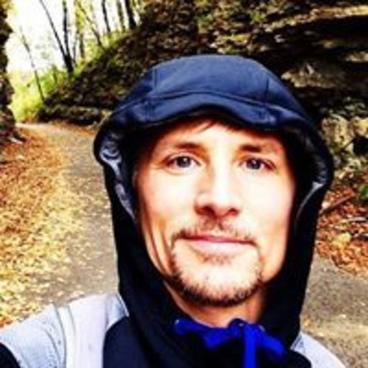
Associate Professor of Psychology & Computer Science
Experts@Minnesota profile | [email protected]
Courses Taught
- Introduction to Bayesian Data Analysis (Psychology)
- Artificial Intelligence II (Computer Science)
- Machine Learning (Computer Science)
- Computer Vision (Computer Science)
- Mathematical Models of Human Behavior (Psychology)
- Machine Learning methods in Modeling Human learning (Psychology)
- Virtual Reality: Perception & Physics (Psychology)
Rahul Bhojwani
Data Science M.S. Program

Being one of those who love the why of things, Rahul's key interest is in designing and building intelligent systems to solve problems that give him purpose. He has worked as a Data Scientists in Honeywell and 2 startups(DataPhi Labs & GOQii) in his earlier career. Through his research projects and work experience, he has gained experience in Deep Learning, Reinforcement learning, Item Response Theory, Churn prediction modeling, Video Analytics, Geo-Spatial Data Science, Sales forecasting, etc. His current research focus is on solving the problem of stress and anxiety in the workspace environment leading to low productivity. The overarching goal is to build a system that can optimize productivity by helping one have a higher focus(be in the moment). And the current stage of that research is in trying to quantify one's state of Focus/Attention. Other than that, he enjoys spending time on his interests that include, Dancing(Part of SAATHMN group), Practicing beats(Beatbox, learning drums), Playing Badminton, Riding his Motorcycle(GSX-R600) and engaging with Entrepreneurship groups.
Valentine Eben
Scientific Computation Ph.D. Program
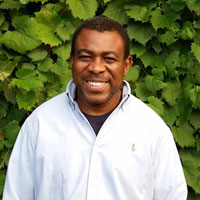
Valentine Eben is a Scientific Computation PhD candidate at the College of Science and Engineering in the University of Minnesota, Twin Cities. Eben is interested in augmenting the effectiveness and efficiency of software engineering (SE) tools and methods with AI and ML techniques with Software analytics, Bayesian modeling, Reinforcement learning, and Natural Language Processing as his focus.
Robert Edge
Computer Science Ph.D. Program
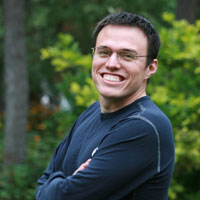
Robert is interested in modeling human learning and behavior in virtual domains. Principle Methods are Reinforcement learning, computer vision, information theory, and foraging theory. Robert has a B.S. Computer Science, University of Wisconsin - Eau Claire. He likes distance running, hiking, baking bread.
Rory Flemming
Cognitive and Brain Sciences Ph.D. Program

Rory’s background in neuroscience, psychology, and bioengineering inspired him to learn more about computational models of the brain and mind. His current research projects vary from modeling attentional resource dynamics as a decision process, investigating how neural networks and hypothesis-driven decision models can be combined to explain scene interpretation constructions of images, and modeling human behavior and learning in complex virtual environments (e.g. League of Legends). Hot sets of words that Rory likes include: “computational cognitive neuroscience”, “multi-agent reinforcement learning”, “<insert descriptor> neural networks”, “dynamic programming”, “game theory”, “decision models”, “hierarchical <insert structure/process>”, “Bayesian <insert method>”, etc.
Thomas Gebhart
Computer Science Ph.D. Program
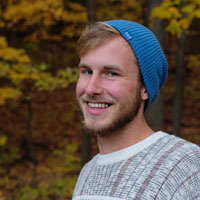
Tom studies emergent, multi-scale structures in AI and Neuroscience. Borrowing mathematical perspective from the fields of Topology and Category Theory, Tom is interested in characterizing computations that exist on or are parameterized by networks. He is particularly interested in artificial neural networks and how their connectivity structure, at both the parameter and architecture level, affect the representations embedded within this network structure and what these insights can tell us about cognition. Tom has a BS in Mathematics and Economics and an MS in Data Science from the University of Minnesota. He enjoys running, cooking, and snowboarding. Website. Twitter.
Karen Guo
Computer Science Ph.D. Program
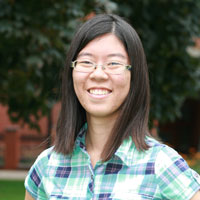
Karen is interested in how the different biosignals and visual inputs could affect response/behavior, and how the user model the correspondence of eye fixation and behavior. Specifically, her research focuses on understanding how human visual attention behaved while viewing an image without any preliminary constraint and as a decision making process. User modeling strategies and model-driven machine learning methods along with temporal series data analysis such as LSTM are involved in her research. In her free time, she likes to travel, cooking, photography, video editing and hand/electric sketching.
Kara Kedrick
Psychology (Cognitive and Brain Science) Ph.D. Program
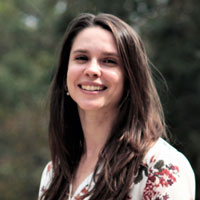
How do people identify knowledge gaps, select which gaps are worth pursuing, and seek out new information? Kara’s ongoing research examines both trait- and state-based curiosity––when confronted with information gaps and given the opportunity to fill these gaps by asking questions and foraging for information––as well as the impact of curiosity-invoked behaviors on subsequent memory. Kara’s collaborative work allows her to explore curiosity using both behavioral and computational methods. Broadly speaking, she is interested in how contextual properties and individual differences (e.g., prior knowledge, personality traits) contribute to both the process and outcomes/products (e.g., concept development, transfer) of information seeking.
Arun Kumar
Computer Science Ph.D. Program
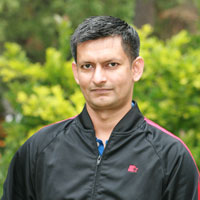
Arun is primarily interested in developing theoretical and algorithmic foundations of a novel meta-cognitive framework for meta-cognitive decision making, learning, curiosity and planning under uncertainty. The proposed framework manifests generalization, compositionality and flexibility widely observed in human intelligence. The techniques used in this work include reinforcement learning, deep learning, information theory, graph algorithms, generative models and optimization.
Dominic Mussack
Cognitive and Brain Science Ph.D. Program

Dominic studied mathematics and cognitive science at the University of Minnesota for a PhD in computational psychology. His research interests focus on using machine learning and cognitive modelling to understand human motivation, decision making, and learning. His dissertation work, advised by Paul Schrater, looks at how people allocate time and the metacognitive systems they use to solve this problem. Dominic wants to use data science and psychology to improve video games, and use games to improve psychology research.
Ioanna Polyzou
Computer Science Ph.D. program
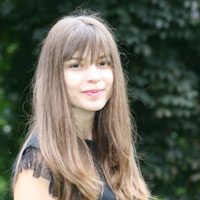
How likely is it for an event to reoccur after a certain amount of time? Can we benefit from information about an event’s periodicity? How can we make our agent “understand” such an environment and plan accordingly? Ioanna is investigating the hypothesis that quasi-periodicity is a major element of foraging-type problems. The goal is to show that when there are underlying periodic processes in the environment, an agent can detect and learn to exploit them, ultimately improving their ability to plan into the future. In addition to improved reward maximization, a major benefit of this framework is that computational costs can be drastically reduced. Key methods in this work include Cycloid Markov Processes, Foraging theory, Optimization, Quasi-periodic processes and Reinforcement Learning. Ioanna has a BS in Mathematics. Playing with dogs, tango dancing, hiking, cinema and board games are some things she enjoys in her (limited) free time.
Tom Ringstrom
Computer Science Ph.D. program
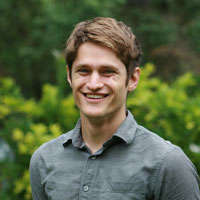
Optimal feedback control is a computational theory of how organisms can achieve adaptive, goal-directed movement. However, it isn’t clear how OFC can be further developed to solve natural, ethologically realistic tasks where an organism finds itself in novel situations with multiple competing goals and new constraints. Tom is interested in combining machine learning techniques with OFC in order to design new cognitive architectures for adaptive, autonomous behavior. His long term interests involve leveraging principles of compositionally, probabilistic inference, and OFC to tackle these problems. His general interests are in motor skill learning for complex tasks. His principle methods are: Optimal Control, Reinforcement Learning, Bayesian Inference. Tom has a BS in Genetics, Cell Biology, and Development. Contact him at: [email protected]. Follow him on twitter: @Tom_Ringstrom
Windy Torgerud
Cogitive Science Ph.D. Program
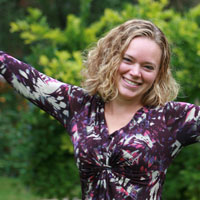
Windy is interested in the dynamics by which physiological arousal and perceived threat state influences information acquisition and decision making. She is also interested in how information accrual and resulting decisions differ when an individual is internally motivated and curious. She collects human subject electroencephalogram (EEG) together with biometric data (heart rate, galvanic skin response, facial emotional expression) and behavioral data (decision reaction time, accuracy) and utilizes computational modeling in analysis. Windy has a Bachelor of Science in Neuroscience. She worked in various research laboratories during and after her Bachelors career resulting in approximately 9 years of research of experience before entering graduate school in 2013. She enjoys orchestrating, organizing, and leading professional community events. In her personal time she enjoys rock climbing, playing video games, volunteering, and doing aerial and acro yoga.
Ryan Davidson Chan, M.S.
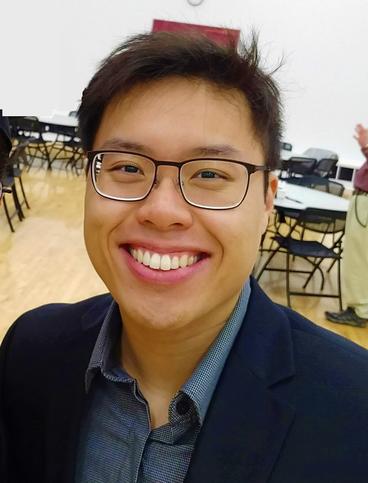
Ryan Davidson Chan is a research specialist in the lab and the university, where his work is predominantly in behavioral modeling both through and for artificial intelligence. His current research interests are driven by three broad questions:
- How to maximize and leverage understanding from partial and/or entangled information?
- How to multi-modally represent, connect, and control environmental artifacts as inspired by bio-cognitive mechanisms?
- How to better factor and engineer individual differences in objectives to diversify generalizable models of interaction?
Currently, Ryan incorporates principles from traditional AI and state-of-the-art neural architectures to build interpretable machines that can reason about and interact in complex and/or partially observable environments like humans do. Among a few techniques he employs are Forward & Inverse Reinforcement Learning, Bayesian & Causal Modeling, Symbolic AI, Semantic Systems, Deep Learning, and Cognitive Psychology.
Ryan received his Master of Science in Data Science & Bachelors of Chemical Engineering with double minors in Chemistry and Computer Science, both from the University of Minnesota - Twin Cities.
You can follow Ryan and his personal works at RyanDavidsonChan.com.
Xiaohuan (Charles) Xia
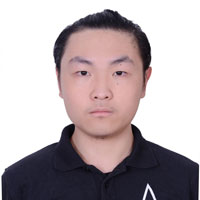
“Everything is connected to everything else.” Xiaohuan is mostly interested in using graph modeling and behavioral experiments to study how human beings learn graphical structure (of different scales) in the world (external graph learning / latent graph structure learning), but also how humans form their own mental graph representations, how curiosity plays a role in information seeking in the mental graph with uncertainties and errors through, for example, graph traversal, how humans behave to gather information to update the mental graph (multi-scale structures, layer-wise update etc).
Claire Yang
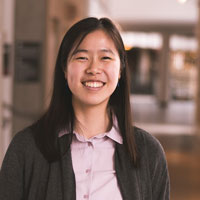
Claire Yang is a junior pursuing a B.S. in Computer Science and a minor in Psychology. She is interested in the intersection of machine learning and human-computer interaction, and is currently involved in analyzing data to learn how players in a multi-agent game acquire skill throughout their interactions. In her free time, she loves to power nap, cook spicy food, and read satirical books.